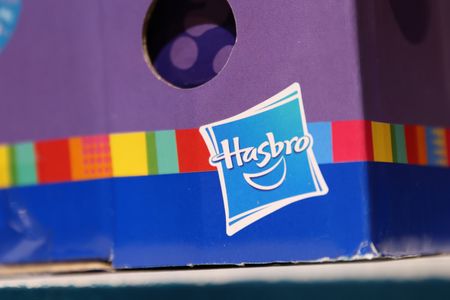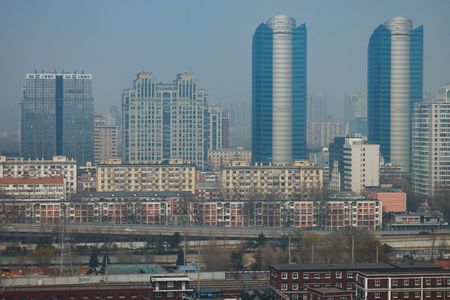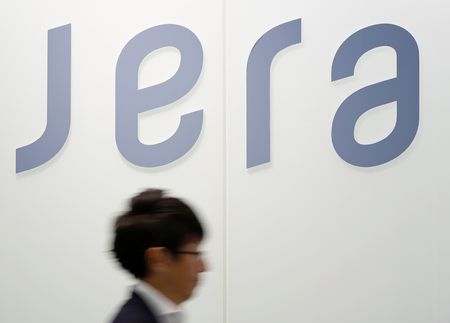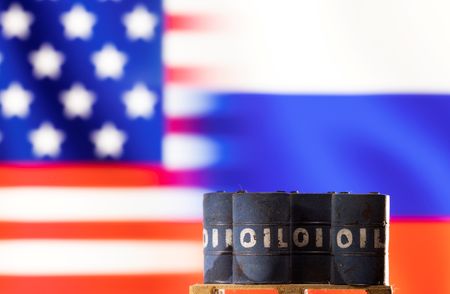By Chen Aizhu, Siyi Liu and Florence Tan
SINGAPORE (Reuters) -Several suppliers have cancelled sales of Middle Eastern and Canadian oil to China’s Yulong Petrochemical after the UK imposed sanctions on the refiner, which is likely to push it to buy more Russian crude, multiple sources familiar with the deals said.
The refiner, China’s newest with a capacity of 400,000 barrels per day and one of the country’s largest single Russian oil customers, is among the entities Britain designated last week to curb Moscow’s oil revenues used to fund the Ukraine war.
Suppliers that are unwinding supply deals include European majors TotalEnergies, BP as well as Saudi Aramco and Kuwait Petroleum Corp, trading house Trafigura, and Chinese state trader PetroChina International, the sources said.
Most of the cancellations apply to spot cargoes that were due to load after November 13, when the sanctions take effect. They include two shipments of 2 million barrels of crude each from Kuwait Petroleum and Aramco, according to three of the sources, with specific knowledge of these deals.
PetroChina International and TotalEnergies each exited transactions supplying Access Western Blend, a heavy crude exported from Canada, said two other sources, who have knowledge of those transactions.
BP and Aramco declined to comment. KPC, Total, PetroChina and Yulong did not respond to requests for comment.
Trafigura had been supplying Yulong with 2 million barrels a month of Omani and Abu Dhabi Upper Zakum crude under an annual contract, said sources with knowledge of the company’s transactions with Yulong.
PIVOT TO RUSSIAN OIL
The decision to cancel the contracts partly stems from concerns about the ability to make payments as large western banks will avoid working with sanctioned entities, the sources said.
With dwindling access to non-sanctioned crude supplies, Yulong will most likely buy more Russian oil, which already accounts for about half of its intake.
“We are already hearing Yulong is moving towards running predominantly sanctioned barrels, which, similar to the sanctions impact on Nayara, may necessitate run cuts,” said Sun Jianan, an analyst with consultancy Energy Aspects.
India’s Nayara Energy, partially owned by Russian major Rosneft, has reduced its refinery runs after European Union sanctions were imposed in July. The company is importing oil exclusively from Russia after Aramco and Iraq’s SOMO halted sales.
While larger companies step away from Yulong, smaller companies without UK connections could continue dealings, said an executive whose company continues supplying Yulong and declined to be named due to the sensitivity of the matter.
Yulong buys 150,000 to 250,000 barrels per day of Russian crude, according to estimates by traders and tanker tracker Vortexa.
Most of Yulong’s Russian imports are ESPO Blend from the country’s Pacific coast that Chinese refineries favour because of the short transit period for the shipments. Recently, Yulong has also imported Urals crude from Russia’s European ports, said three traders familiar with Yulong’s procurement patterns.
It secures most of its Russian supply from dealers linked to major Russian producers, said two of those sources.
Built on a man-made island near the port of Yantai in the northeastern province of Shandong, Yulong Petrochemical is a joint venture between private aluminium firm Nanshan Group and government-backed Shandong Energy Group.
(Reporting by Chen Aizhu, Siyi Liu, Florence Tan and Trixie Yap; Editing by Tony Munroe and Christian Schmollinger)








